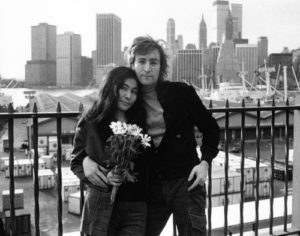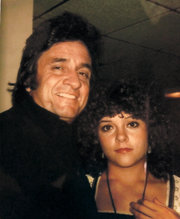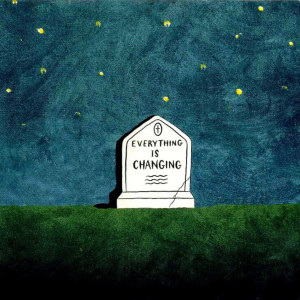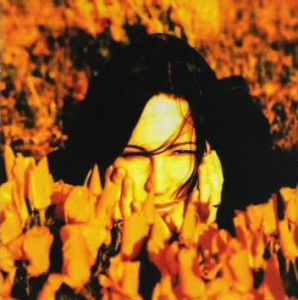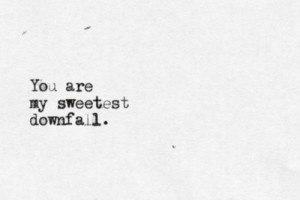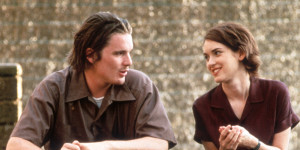The Democratic Party is at a crossroads . The first two weeks of the Trump administration have catalyzed a powerful wave of protest and political action—the likes of which haven’t been seen in decades. There was a lot of talk over the past couple years about the possibility of a ‘Tea Party of the left,’ and a lot of doubt that such a thing was possible.
Those doubts are starting to fade. It remains to be seen precisely what this action will actually produce, but there’s no denying the level of energy, or the success it’s already had.
That compares with the institutional Democratic Party, which is agonizingly close to exercising real power, but the distance of just a few votes in the Senate looks like a thousand miles right now.
This disconnect—between a rising movement ready to flex its muscles and an institutional party that simply has no meaningful access to meaningful power—is inevitably going to cause tension. The question for the party is how it wants to respond to that tension.
Option One: Muddling Through
One impulse—one grounded in frustration with the accusations of spinelessness and cowardice—will be to lash out. I sympathize with this impulse. After all, it must be incredibly frustrating to narrowly lose an election of such significance, and to lose partly because your own base simply didn’t turn out in the numbers of the previous cycles. Then, after being stripped of all capacity to affect events, to be called cowards for not doing anything.
To this point, it’s important to note here just how limited the Democrats are. Many people are calling on them to ‘block’ Trump’s nominees, but they simply can’t do that. Even a fully united Democratic caucus would simply watch each nominee sail through on a 52-48 vote. Others are proposing that they utilize the techniques of obstruction to grind things to a halt. There is something to this, but it only goes so far. All of the rules that make such obstruction possible are amendable. Abuse them, and Republicans will simply change the game.
Given these limitations, you can make a real case for trying to muddle through in the majority of cases—saving your powder for a few choice efforts when it might actually be possible to move the needle. A policy of complete rejectionism, after all, might communicate to moderate Republicans: ‘we cannot be negotiated with,’ and would likely drive a permanent wedge between Congressional Democrats and Republicans.
So, rather than huffing and puffing nonstop, why not try to build connections with those on the other side of the aisle who are distrustful of Trump? These are the McCains and Grahams and Sasses of the world, who might ultimately be willing to switch sides on some important votes—but will only do so if they can position themselves as a voice of unity and reason.
The final argument for restraint is a concern that simply mimicking the nihilistic antipolitics of the Tea Party will do irreparable harm to the structure of political legitimacy. Things are already dire, but so far the Democrats have remained a party committed to the premise that governing norms are possible, that comity is possible, and that pluralism is a viable condition for governance.
All of these points deserve serious consideration. It’s not crazy for the Democrats to consider this. But in spite of these concerns, I can’t endorse ‘muddling through.’
The game has changed, and Democrats are going to get burned—and burned badly—if they fail to recognize it.
The Politics of Normative Disorder
We live in tumultuous times. The normative systems that bound together our political community have been fraying for decades, and each new crisis only heightens this effect. This crisis is not simply about Trump, the Republican policy agenda, Steve Bannon, or growing nationalist fervor. Each of those are important, but ultimately would be containable if our political system still functioned at full strength.
After all, political norms are quite powerful—and far more durable than you might expect. Those who violate them may win individual battles, but they rarely survive long enough to win wars. Conditions of stability and order are ultimately re-imposed, either by casting out the challengers or (quite commonly) by coopting them—drawing them within the fold.
However, this system of legitimacy depends on a complicated linked structure of normative expectations. One norm alone is quite weak; it can easily be violated or (more commonly) reinterpreted to the point of indeterminacy. But many norms together are a powerful corrective force.
What we have seen over the past several decades is a corrosion of normative expectations as such. We tend to pay most attention to the individual cases, where longstanding habits are cast aside—the filibuster is weaponized, the debt ceiling is held hostage, a candidate brags about sexual assault, etc.—but the underlying structure is also being weakened.
This does not mean that we have entered a death spiral—and that political norms are irrecoverable. That point may come eventually, but we aren’t there yet. But the escalating crisis in political legitimacy does mean that we need to have a serious conversation about how the wounds are going to be sutured. Failure to engage that problem means sleepwalking over the cliff.
When facing exceptionally dangerous challenges to the long-standing structures of American politics, it is not only acceptable but necessary to employ extraordinary measures. That means that where Trump is trying to dislodge the basic workings of American democracy and rule of law, resistance by any means possible is a good watchword. Buy contrast, where Trump is simply pushing for a conservative political agenda, radical rejectionism is dangerous. Separating these two may be difficult in some cases, but is absolutely necessary.
At the end of the day, there is no going back to the previous generation. Things have changed, and not in a good way. If Hillary Clinton were president right now, I’d be far more sanguine about the possibility for a mid-course corrective and a resuscitation of political faith from within the confines of politics-as-usual. But Clinton is not the president.
And when the ship of state is being steered by a man who wants to crash into icebergs, it’s time to either start shifting your priorities, or else start searching for lifeboats.
Option Two: Happy Warriors
So this brings us to the other possible strategy for regaining power: the ‘happy warrior’ approach. In this world, Democrats pound the airwaves and the pavement talking up a counter-agenda to Trump. They take a page from the Bernie Sanders playbook and speak loudly for a set of values that prioritize working people, which make concrete and aggressive promises to secure equality for minorities and socially excluded groups, which draw a sharp line between themselves and crony capitalism.
This strategy will obviously appeal to their base—who have long been calling for such things. But it obviously carries risks as well. First, and most obvious, is that many of these positions are not especially popular with the median American voter. Second, many of these commitments would be extremely difficult to fulfill, even if they regain power. Third, moving in the direction of affirming ‘the Tea Party of the left’ risks reproducing the same toxic effects generated by the original Tea Party: ever-heightening partisanship and ever-weakening party control, growing distrust for any and all normative restrictions.
These risks are real and should not be dismissed out of hand. But the risks of not acting are even worse.
The question for Democrats is not whether they should seek to mobilize a multicultural populist movement. The movement is here. It was evident on January 21st when the women’s march produced the biggest single day protest in US history. It exploded a week later with spontaneous mass demonstrations across the nation to challenge the anti-Muslim refugee exclusion act. The slumbering beast of leftwing political action has been awakened, and it will not go gently into that good night. The only question left for Democrats, then, is how they will relate to this fact.
Do they serve as force multipliers, amplifying voices, lending logistical and organizational assistance where necessary, and leaning hard on the instruments of our political institutions in the limited places where it is possible? If they do, they may find that this is a powerful vehicle for enhancing their own authority within the halls of power. The Trump administration is engaged in a war—and for now, the Republicans in congress have decided that it’s safer to go along and get along, as long as it keeps the guns pointed outward. A truly mobilized political opposition, one that draws aid and comfort from a mass movement of engaged citizens, will make that calculation much harder to sustain.
Is this a scary proposition? Of course it is. But we live in terrifying times. The sooner the Democratic Party accepts this reality, the sooner they’ll be able to contribute positively.
Fail to side with the people and they’ll quickly find themselves attacked from all sides. And most damagingly, they’ll have chopped off the legs of the burgeoning movement before it even got the chance to fully form. A groundswell of public action mobilized in favor of equality, justice, and tolerance has a powerful chance to transform the nation. The single least productive thing that could happen to this movement would be to descend into intra-left bickering of the sort that has often defined ‘progressive vs. liberal’ arguments (see: the 2016 Democratic primary).
The left has captured lightning in a bottle this week. This happened as a response to a deep crisis in American politics, but such is often the way. Moments of crisis also create opportunities. We would all be far better off if things had been otherwise. But this is where we are. The Democrats have an opportunity to catalyze this movement. They would make a huge mistake if they allow themselves to become its enemies.
Practical advice for the Democratic Party
Okay, so let’s assume the Democrats take my advice. What should they actually do? Here is my 8-point action plan.
1. Maintain a united front, even if when feels like you’re under attack. Many on the left distrust the Democratic Party, for some good reasons and for some reasons that are (in my opinion, and likely yours as well) nonsense. The nature of this thing means that you’re going to get a lot of pushback, a lot of distrust. Snide remarks will be made. Doubts will be raised about your commitment. You will feel the urge to respond. Resist this impulse. Remember: you are a Happy Warrior. You will demonstrate your bona fides through action. You will grin and get on with the next task.
2. Symbols matter. Most of your actions over the next few months and years will have very little legal consequence. If zero Democrats vote to confirm Tillerson, or if 48 do, it probably won’t matter. Even if a few Republicans are willing to side with you on minor points, the Congressional leadership is not going to disentangle from Trump absent a sea change in the political landscape. So: your actions will have little material consequence. But this doesn’t mean they don’t matter. People will be watching closely to see what you do, regardless of its ultimate effect. This may feel frustrating, but see #1 above.
3. Rejectionism is preferable to collaboration. Given the two previous points, the strategy on Trump’s appointments is clear: obstruct, refuse, reject. Employ whatever tactics are available to gum up the works, refuse to allow quorums, do not accede to unanimous consent, do not vote yes for people who are clearly unqualified. Trump doesn’t need your votes, but they offer some small evidence of normalcy. You do not have to provide this to him.
4. Rejectionism must be grounded in a broader argument in favor of norms. As you employ the techniques of resistance, however, it’s important to keep your eyes on the prize. The goal is not simply to resist Trump. The goal is to restore a sense of optimism and faith in the American people. If Democrats regain control of power in two or four years, but attempt to govern over a people even more fractured and disillusioned, it will be to very little good purpose. So: you should constantly be clarifying the reasons for your obstruction, and offering clear and fair offramps to Trump and the Republicans. Your message is “run this government in a normal way, and we will play the role of a loyal opposition. Behave like budding authoritarians, and we will resist.”
5. Filibuster any Supreme Court nominee. As I write this, Trump is promising to unveil his choice to fill Scalia’s seat. You must filibuster this nominee. This is one of the only actual points of leverage the Democrats still hold, and it would be madness to give it up. It is likely that McConnell will eventually break the filibuster by invoking the nuclear option. Accept this as an inevitability, and fight anyways. There is absolutely nothing to gain from waiting. Your message is ‘we will consider the qualifications of any further nominee for a different vacancy. But we cannot in good conscience permit the unprecedented obstruction of Merrick Garland to be rewarded.’
6. Your primary job right now is to be a community organizer. The clearest and most powerful way to resist authoritarianism is to perform its opposite. If the message of the left is going to be ‘the power of the people,’ its actions should be an operationalization of this idea. Demonstrate your willingness to work for the people by actually doing it. Organize rallies, help build call lists, facilitate coordination, provide avenues that make it easy for people to get involved. A huge part of the Congressional job is constituent service, anyways. This is just an extension of that existing role. The key point here is that the country is full of people who desperately want to help, but feel powerless to do so. They will show up to rallies, if they exist, might make some calls, donate to the ACLU. But they want more chances. Your job is to create the opportunities for all of them to play a role.
7. Overpromising is okay. Democrats are particularly sensitive to the dangers of over-promising. This was a big part of the Clinton/Sanders fight, and obviously there is a real sense in which Trump took power simply through the power of repeatedly lying about what he could do. So the party has a tendency to speak in terms of the possible, rather than the true goal. But there is no better time than now to reach for the stars. The party is out of power, and has just as much chance of achieving a comprehensive carbon tax as it does of achieving modest restrictions on oil drilling. So: shoot for the moon. Tell people what you really want. Give them a reason to believe in the power and importance of an active, well-run, engaged government. You don’t want to make promises so impossible that it will provoke backlash once you achieve power and then utterly fail to keep them. But you do want to articulate a real vision, a comprehensive picture of significant transformation. Many agenda items of the left are not especially popular, but ideologies are not set in stone. Get out there. Speak, persuade, incite, mobilize. If you make the case and make it well, people will join you.
8. Look to California. And New York, and Massachusetts, etc. But especially California. Democrats are out of power at the national level, it’s true. And they’re not in great shape in many states. But they are absolutely dominant in California—a state that is large, rich (with a GDP of $2.4 trillion – it’s one of the 10 largest economies in the world, all by itself), and quite diverse. Now is the time to experiment, to push the margins of political possibility. The country as a whole may be retrenching significantly, but there’s no reason why California couldn’t aggressively pursue a Western European style of democratic socialism. We’re already seeing California challenging the national government on issues like sanctuary cities. They should do a lot more, and the Democratic Party should devote some of its substantial institutional and intellectual heft to helping them.


